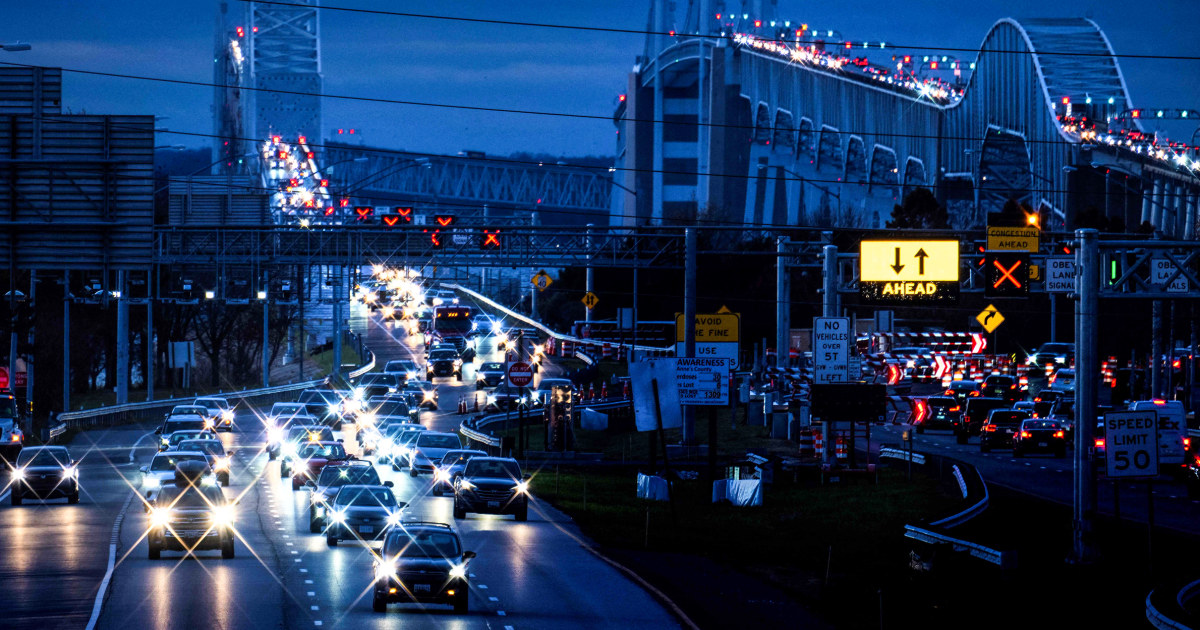#Should cars have built-in speed limits? Some think it’s time

The National Transportation Safety Board has recommended that all new automobiles come equipped with technology meant to make speeding difficult or impossible, a move that comes after an accident in Las Vegas killed nine people.
It’s the second such recommendation from the NTSB in six years, but road safety advocates are not optimistic about the technology’s adoption despite speed being a common factor in auto fatalities.
Intelligent speed assistance technology, or ISA, uses GPS and sign recognition to prevent vehicles from exceeding the speed limit in a given zone.
It’s been met by auto manufacturers with little enthusiasm, and the recommendation has not yet been adopted by the National Highway Traffic Safety Administration.
Last year, more than 12,000 people in the U.S. died in speeding-related crashes. Hundreds of thousands more were injured.
“There are lots of things we can tweak that make crashes less likely and lethal, but one of the most powerful things we can do is slow cars,” said Isabella Chu, associate director of the data core at the Stanford Center for Population Health Sciences.
NTSB Chair Jennifer Homendy said in a news release this month that the accident in Las Vegas in 2022, in which four children were among the nine people killed when a car traveling more than 100 mph hit a minivan, was one of many that had informed the NTSB’s new recommendation.
“This crash is the latest in a long line of tragedies we’ve investigated where speeding and impairment led to catastrophe,” she said.
“But it doesn’t have to be this way.”
Intelligent speed assistance technology differs from traditional speed-limiting devices in that there isn’t a flat speed cap. The limiting effect takes into account the speed limit of where a person is driving.
The technology was one of several recommendations the NTSB made to the National Highway Traffic Safety Administration, as well as all 50 states and the major domestic auto manufacturers. The NTSB said a final report regarding these recommendations will be published in the coming weeks.
It’s unclear when or if these recommendations will be implemented.
Sarah Sulick, public affairs specialist for the NTSB, noted that the board does not have regulatory or enforcement powers and that it initially recommended incentivizing intelligent speed assistance technology to the National Highway Traffic Safety Administration back in 2017.
The status of that recommendation, even now that it’s been reiterated, is listed as “non-urgent.”
In March 2022, the National Highway Traffic Safety Administration issued a request for public comment on whether intelligent speed assistance technology should be included in its new car assessment program, which gives safety labels to new vehicles.
More than a year and a half later, the agency is still reviewing public comments and developing “a final decision notice.”
Automobile manufacturers also seem lukewarm on adopting the technology.
“While vehicle technology can play a role, we’ve advocated for a continued emphasis on transportation policies that focus on driver education and awareness,” the Alliance for Automotive Innovation, which represents the vast majority of domestic auto manufacturers, said in a statement.
Some activists don’t think education and awareness go far enough.
David Zipper, a visiting fellow at Harvard University’s Kennedy School whose work focuses on transportation policy and society and who recently wrote an op-ed in defense of intelligent speed assistance technology, told NBC News “the approaches we’ve had for decades aren’t working.”
“Nagging people to abide by speeding laws only works once in a while,” he said. “A more natural place to focus is on car design.”
Zipper said there’s no reason for anyone to travel more than 20 mph over the speed limit on any road, and the dangers associated with that kind of speeding are avoidable “if we install this well-known technology.”
Chu said there are many ways to make automobiles safer, such as revolutionizing road design to prioritize the safety of human beings above motor vehicles.
But since that doesn’t seem likely soon, she sees speed-limiters as a “good interim solution while roads are redesigned for safety.”
“Speeding is implicated in about 30% of road deaths, so that’s tens of thousands of deaths and hundreds of thousands of injuries every year,” she said.
Despite the bleak prospect of intelligent speed assistance becoming law in the near future, Chu remains optimistic that automobiles can be made safer for people.
“There is reason to have hope,” she said.
“If you’re right on the merits, and what you’re arguing for is just, eventually you do win.”
If you liked the article, do not forget to share it with your friends. Follow us on Google News too, click on the star and choose us from your favorites.
For forums sites go to Forum.BuradaBiliyorum.Com
If you want to read more News articles, you can visit our News category.




